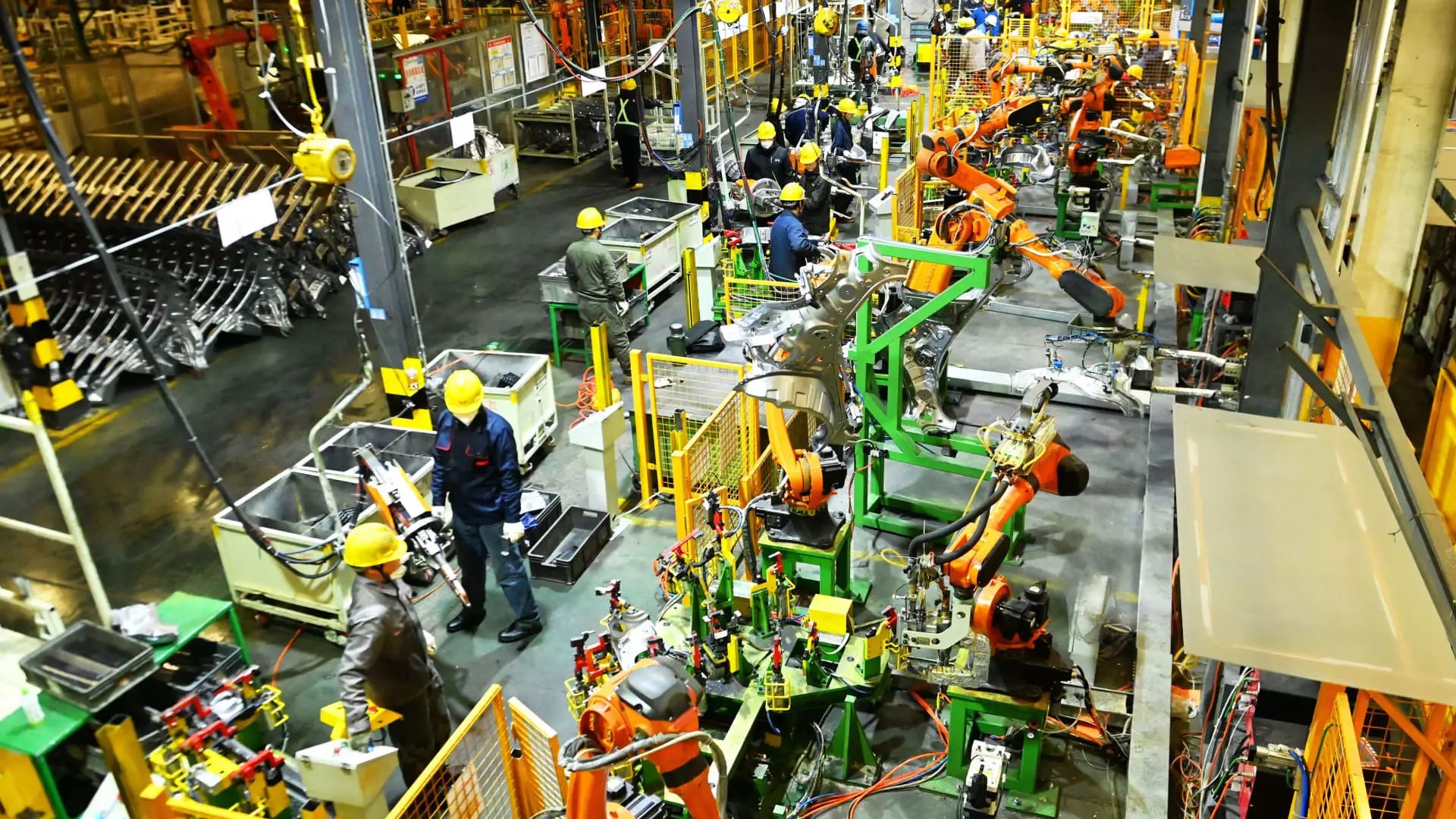In a controversial move that has sent shockwaves through the automotive industry, President Donald Trump is reportedly weighing exemptions for automakers from a series of hefty tariffs imposed by his administration. While purportedly aimed at strengthening American manufacturing and combatting the illicit drug trade, these tariffs might be inflicting more harm than good on domestic automakers. Reports suggest Trump may consider exempting auto parts from the tariffs targeting imports from China, while steadfastly maintaining a 25% tariff on imported vehicles. The situation highlights a critical reality: the administration is potentially laying the groundwork for an economic quagmire under the guise of protectionism.
The Inconsistency of Policy
One of the most pressing issues manufacturers face is the lack of clarity and consistency in industrial policy. General Motors’ CEO Mary Barra succinctly encapsulates the frustration many industry leaders feel, stating, “I need clarity, and then I need consistency.” Ambiguity in tariff regulations not only stifles innovation but also deters investment decisions, leading to strategic paralysis. Devising long-term business plans becomes nearly impossible in an environment characterized by sudden shifts in policy. This uncertainty can translate into lost opportunities, stunted growth, and ultimately, a compromised competitive edge. Automakers are caught in a limbo, neither able to fully engage with international markets nor assured of a robust domestic market.
An Unwanted Trade War
Trade wars, by their very nature, lead to escalating tensions between nations. The automotive sector, often seen as a snapshot of broader economic health, could be caught in the crossfire of protective tariffs aimed at countering fentanyl production. The auto industry in the U.S. is intricately linked to global supply chains, relying on a delicate balance of parts sourced from various countries, including those arbitrarily penalized by tariffs. Economic strategies rooted in protectionism can sometimes produce unanticipated consequences, such as driving up costs for consumers and squeezing smaller suppliers, who are less able to absorb additional financial burdens.
The Coalition of Concern
The coalition of automotive industry stakeholders—spanning manufacturers, suppliers, and policy advocacy groups—has reached an unprecedented consensus regarding the detrimental impacts of these tariffs. The alignment of such diverse entities signals a critical turning point in lobbying efforts, emphasizing the urgency for tariff relief. Automobile production in the U.S. is reported to be “in distress,” with the impending tariffs on auto parts threatening to tip many suppliers into insolvency. This realization underpins a unified cry for relief—a cry that the administration must heed if it hopes to protect jobs and maintain healthy competition both domestically and internationally.
European Comparison and the Slippery Slope
A stark comparison can be drawn between Trump’s tariffs and those enacted in Europe following the 2008 financial crisis. Europe’s automotive sector faced similar challenges, but policymakers opted for trade facilitation rather than punitive tariffs. Unsurprisingly, those nations now boast resilient auto industries that continue to innovate and excel globally. The U.S. may risk following the slippery slope of punitive tariffs leading to retaliatory measures from trading partners, depressingly impacting sales and exacerbating economic distress for U.S. manufacturing.
The Economic Ripple Effect
Beyond the immediate implications for automakers, the ongoing tariff struggle could send ripples throughout the broader economy. The automotive industry employs millions and is tightly intertwined with sectors like steel production and technology. Elevated tariffs on imported steel and aluminum have already raised production costs, and if the forthcoming auto parts tariffs compound these expenses, the trickle-down effects may lead to widespread price increases for consumers and layoffs in manufacturing. This scenario creates a cycle of economic detriment that far outweighs any perceived short-term gain from these tariffs.
The path forward is fraught with peril, and the stakes couldn’t be higher for manufacturers and consumers alike. Donald Trump must carefully consider the long-term implications of these tariff strategies, as the impact of his administration’s decisions echo far beyond the walls of the Oval Office. This is not just a matter of autos and tariffs; it is a question of America’s standing in the global economy, the health of its industries, and ultimately, the well-being of its workforce.


Leave a Reply